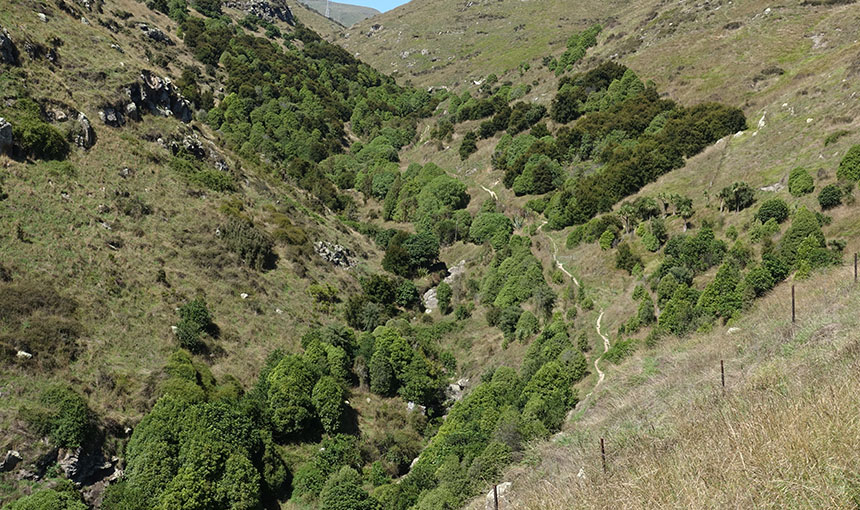A one-stop-shop for farmers
A BioHeritage project has inspired the creation of what could be the ultimate biodiversity guide for New Zealand farmers.

Farming & Nature Conservation (FNC) is working together with Beef + Lamb New Zealand (B+LNZ) and the Tindall Foundation to develop a comprehensive online platform that demonstrates how to protect, maintain and restore indigenous biodiversity on farms.
This extension project aims to give farmers the information they need in one easy-to-use website, in order to start breaking down some of the barriers to having healthy native habitat on farms.
It’s a project aligned with BioHeritage research that aims to help primary production and native biodiversity work together. FNC co-lead and University of Canterbury Professor David Norton says management of native biodiversity on private land is essential to sustain all of New Zealand’s native species.
“The only way to ensure that this is done in a sustainable manner is to give landowners – farmers and others ownership of biodiversity, so they understand its importance and want to manage it. That ownership must include the knowledge needed to effectively manage indigenous species.”
While primarily aimed at sheep and beef farmers, many of the resources to be included in the website will also be applicable to dairy and other types of farms.
B+LNZ’s Environment Capability Manager Matt Harcombe says it’s incredibly exciting to be working in parallel with one of our critical National Science Challenges.
“We can help shape how that work unfolds, connect it directly to what we hear and know from farmers, connect the people involved directly to farmers and most importantly connect the outputs, findings and emerging work straight to farmers.”
There are four pillars to B+LNZ’s environment strategy – clean freshwater, healthy and stable soils, moving towards carbon neutral and thriving biodiversity.
A healthy New Zealand environment underpins B+LNZ’s produce, Matt says. They need to be able to demonstrate at scale that farmers are acutely aware of how their farms interact with biodiversity, and that they are making a positive contribution towards improving it.
David says the biodiversity extension project will allow farmers to access the right information for their property, with the right amount of detail to enable them to make good informed decisions on the management actions they implement.